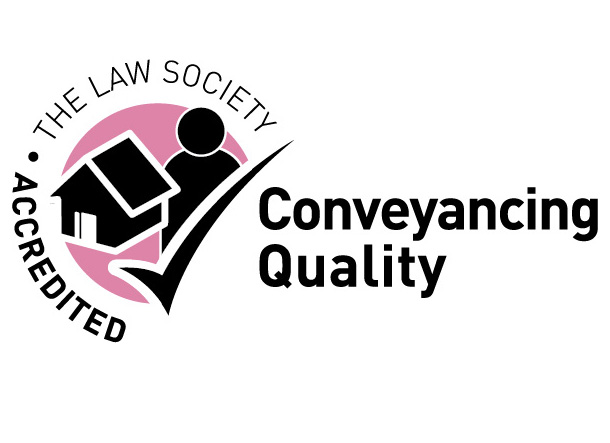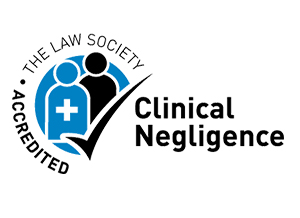Whenever we lose a loved one it is a very sad and difficult time.
If a family have reason to believe that a loved ones death was avoidable, this makes things all the more traumatic. It can be a very confusing as well as distressing time for all concerned.
Whilst in the fullness of time it may be possible to bring a claim for medical negligence in relation to the treatment that was provided, in the short term however, there are often more immediate concerns for the family to deal with, such as whether or not a post mortem and inquest into the death are to take place.
We at Freemans have vast experience in dealing with medical negligence claims where a patient has passed away and as a result we are also familiar with post mortems and inquests. We therefore provide the information below in the hope it may provide some assistance to families during these difficult times whether or not you also decide to pursue a claim for medical negligence.
Registering a death
When someone dies one of the first things that must be done is that the death must be registered. In order for a death to be registered a medical certificate setting out the cause of death needs to be issued by the GP or hospital doctor who has been looking after the person who has died.
There are however a number of situations where the doctor will be unable to issue a medical certificate and the death will need to be reported to the Coroner. These include:
- Where the cause of death is unknown
- Where the death was sudden and unexplained
- Where the person who died was not visited by a medical practitioner during their final illness
- Where the death occurred during an operation or before the person came out of anaesthetic
Once a death has been referred to a coroner they will usually either determine that the cause of death is clear and have the medical certificate completed or order a post-mortem to find out how the person died.
Post-Mortem
A post mortem examination is a detailed examination of the body after death by a pathologist, who is a doctor with specialist training and expertise in diagnosing disease through looking at tissues and cells. The findings of a post-mortem will be used to try and determine why someone has died.
The Coroner or Coroner’s Officer will give you the cause of death found by the pathologist at a Coroner’s post mortem examination. If the cause of death is not found to be natural or is still unknown then the coroner must hold an inquest.
Coroner’s inquests
An Inquest is a public hearing where the circumstances of death are examined by a Coroner. It is a fact finding exercise intended on try and answer the following, limited, questions:
- Who the deceased was.
- When the deceased died.
- Where the deceased died.
- How the deceased died.
The sole focus of the inquest is to answer the questions above. It is not designed to identify negligence or apportion blame.
The investigation is totally separate from any medical negligence claim and by law a Coroner is specifically prohibited from making findings relating to civil liability.
That said, the Coroner will gather evidence in preparation of the hearing and during the hearing itself can call relevant witnesses to give evidence to establish the circumstances of the death and enable him/her to answer the relevant questions. This evidence as well as the conclusions that are reached into the death (see below) are often relevant when looking at any potential medical negligence claim.
At the end of the inquest the coroner will make a verdict. In addition the Coroner can make recommendations to the relevant authorities to try and prevent a death from happening again.
The most common verdicts/conclusions which are relevant to deaths linked medical treatment are:
- Natural Causes – where a death was caused by the normal progression of a natural illness which was not significantly contributed to by human intervention.
- Accidental Death – where the cause of death was unnatural but not unlawful. This would include situations where the patient’s condition would not normally have led to death and it was the treatment itself which caused the death.
- Misadventure – This is very similar to a verdict of accidental death, the distinction being that misadventure implies that an individual deliberately undertook an action which results in death.
- Neglect – where death is caused by a gross failure to provide very basic needs such as nourishment, liquid, warmth or medicine to someone in a dependent position. There must be a clear connection between the neglect and the cause of death. Verdicts of neglect are quite rare. Where neglect does form part of the verdict it is usually noted as a contributing factor towards another cause of death. For example, death by natural causes contributed to by neglect.
- Open Verdict – An open verdict is an indication that there is simply not enough evidence to prove and return one of the other verdicts.
- Narrative verdict/conclusions – Coroners may also deliver a ‘narrative’ conclusion which sets out the facts surrounding the death in more detail. This longer explanation will include the coroner’s conclusions on the main issues arising in the surrounding circumstances of the death. The Coroner is also not bound by the list of suggested conclusions above; this means that as long as the Coroner can form a conclusion which is concise and indicates how the deceased came by their death, a narrative verdict is acceptable. This is quite often the approach adopted by Coroners in cases involving issues with medical treatment and can provide greater satisfaction for the family of the deceased as more of a detailed conclusion of events leading to the death is provided by way of the Inquest verdict. It is however worth repeating again that the Coroner is prohibited for making any findings of civil liability.
If you have lost a loved one and are involved in an Inquest we would be happy to discuss this with you further and provide any assistance we can. From the above information we hope that you can also appreciate that whilst an inquest may provide you with some of the answers you require, it is distinct from a medical negligence claim which looks at all of the issues from a different perspective, considers the issue of liability/fault and looks to recover compensation on behalf of the deceased’s estate and/or dependants. More information on this type of medical negligence can be found here.
If you have a query regarding the Inquest procedure our experienced medical negligence solicitors would be happy to discuss your case with you. Please call one of our solicitors today on 0191 222 1030 for a free consultation in relation to your query or complete our website enquiry form.


